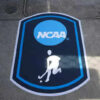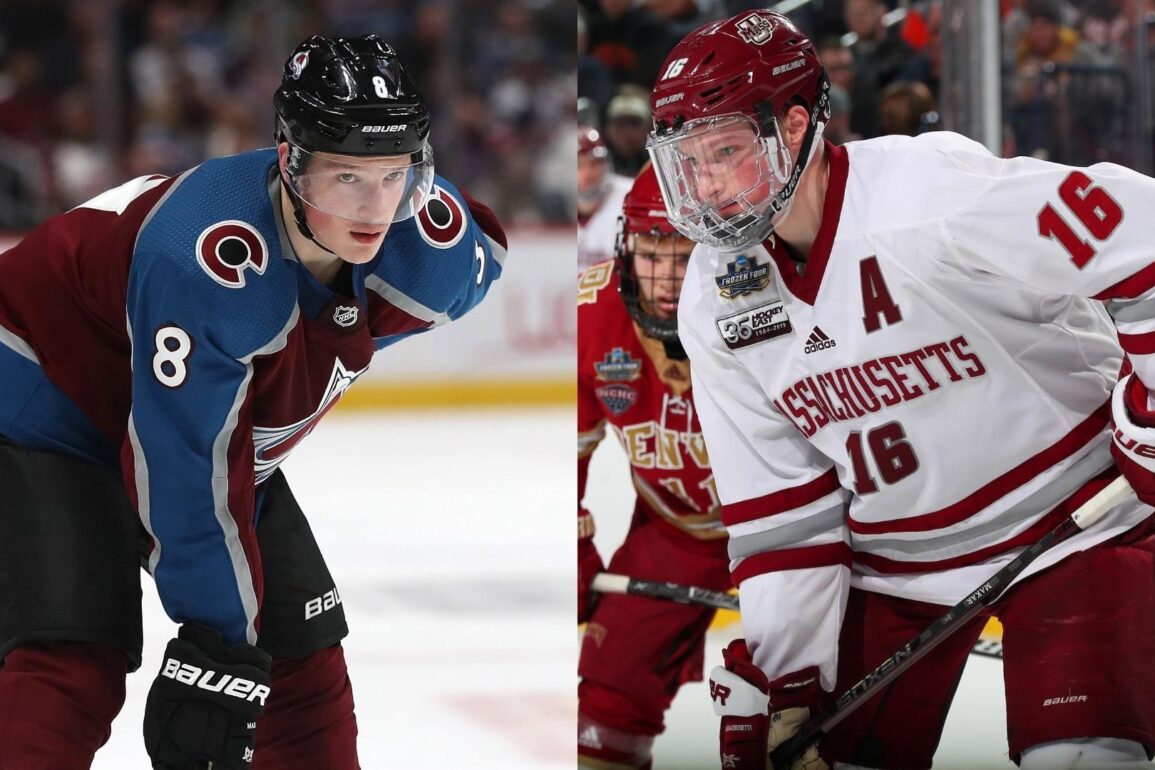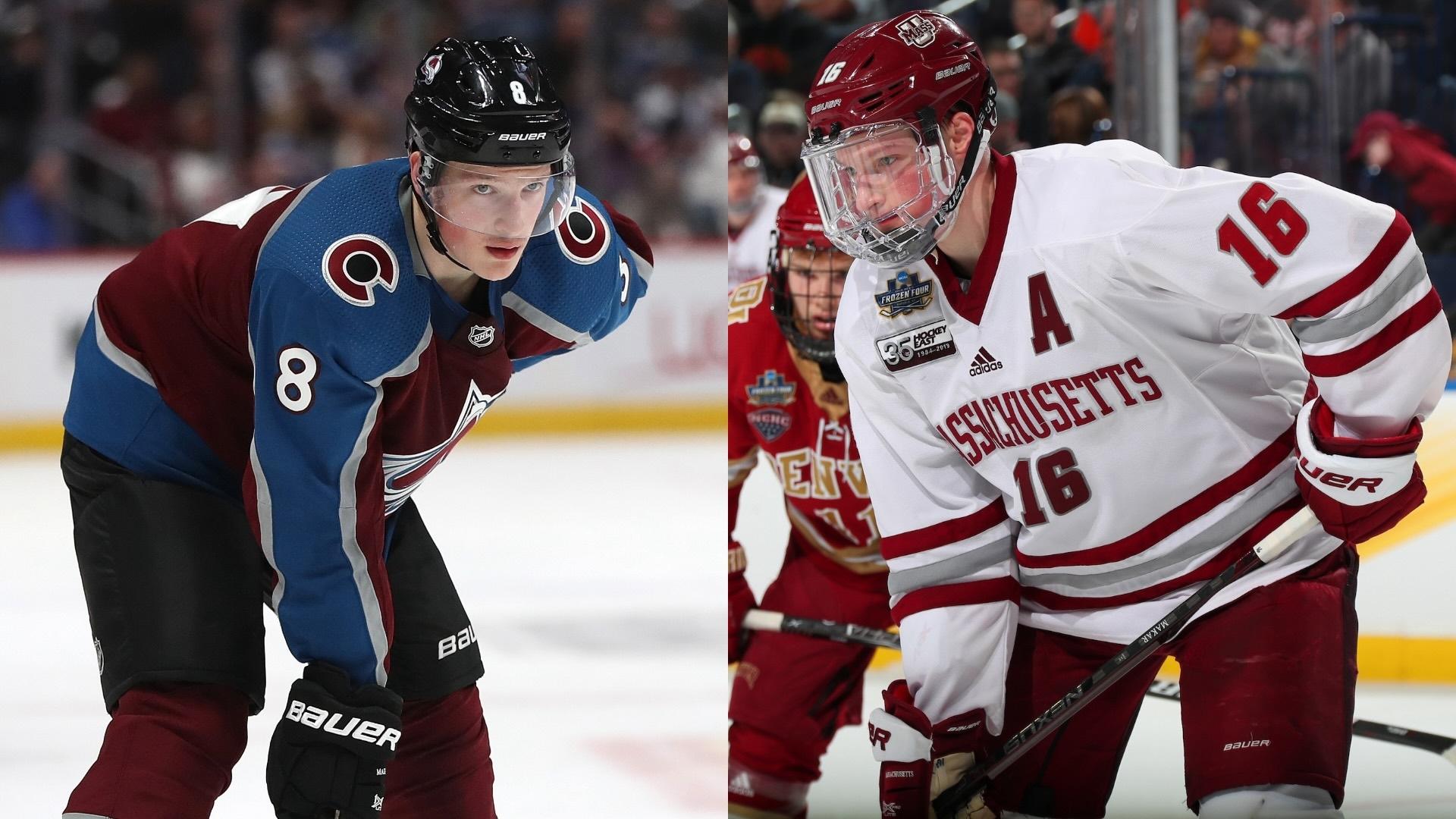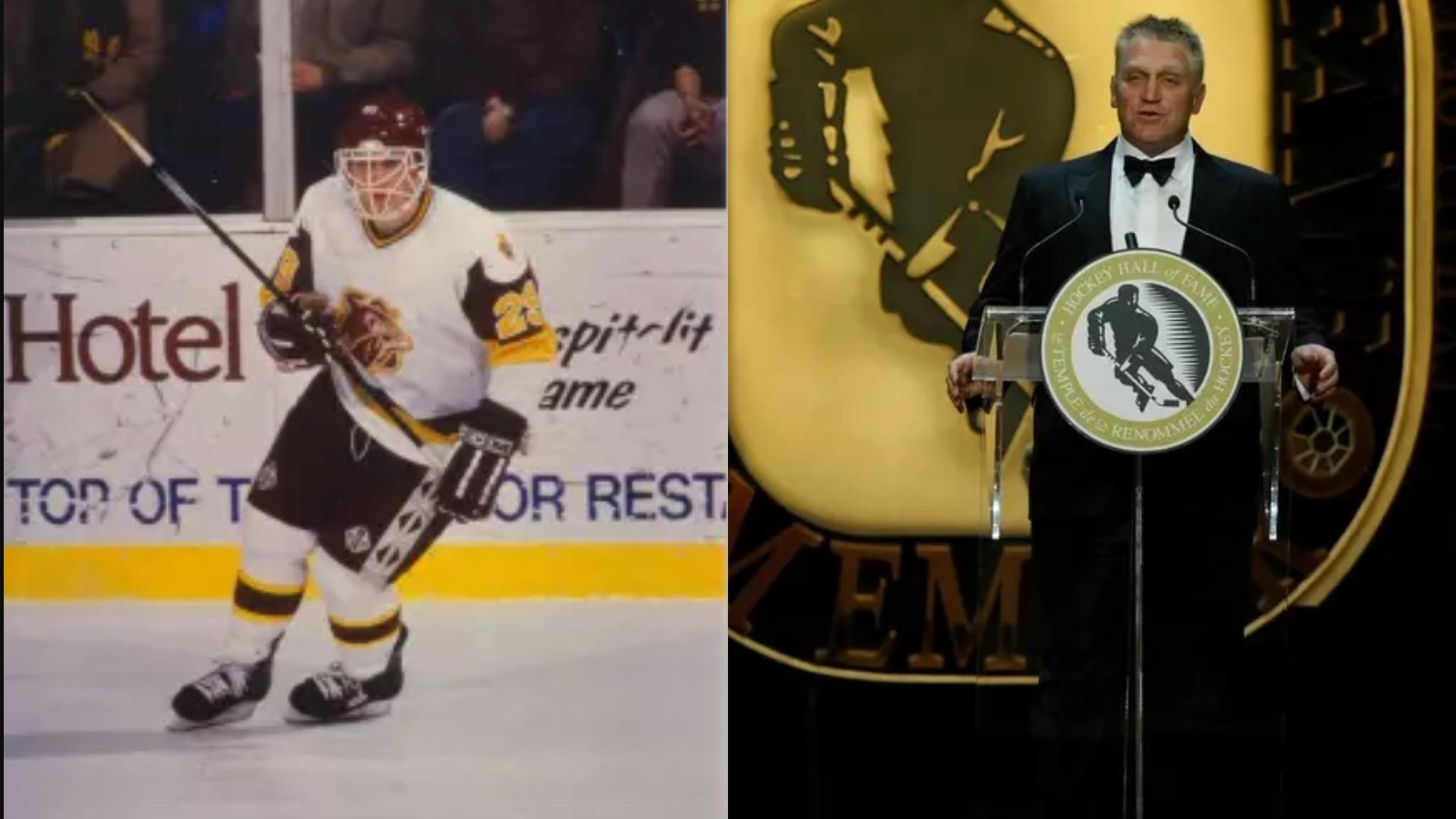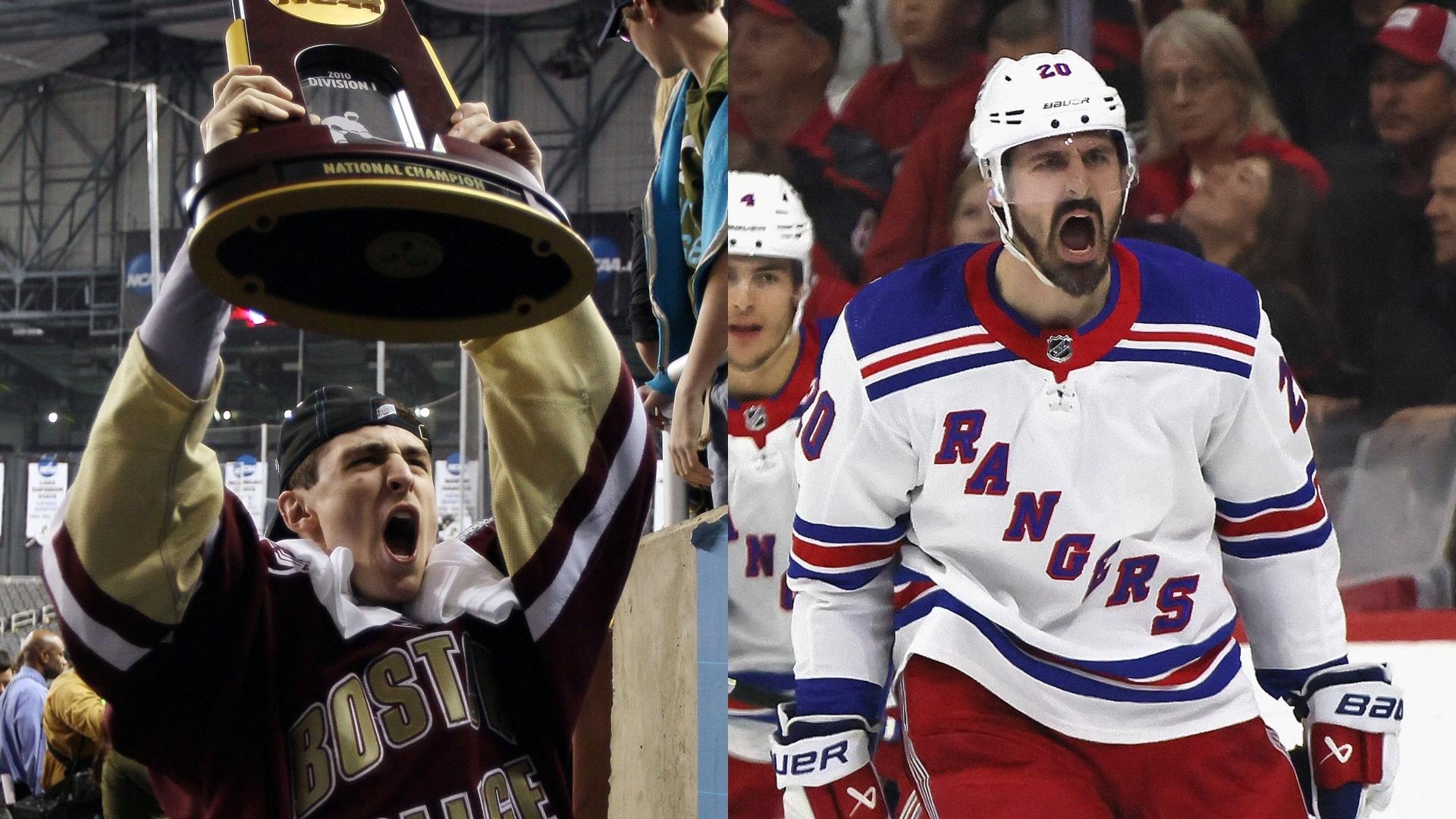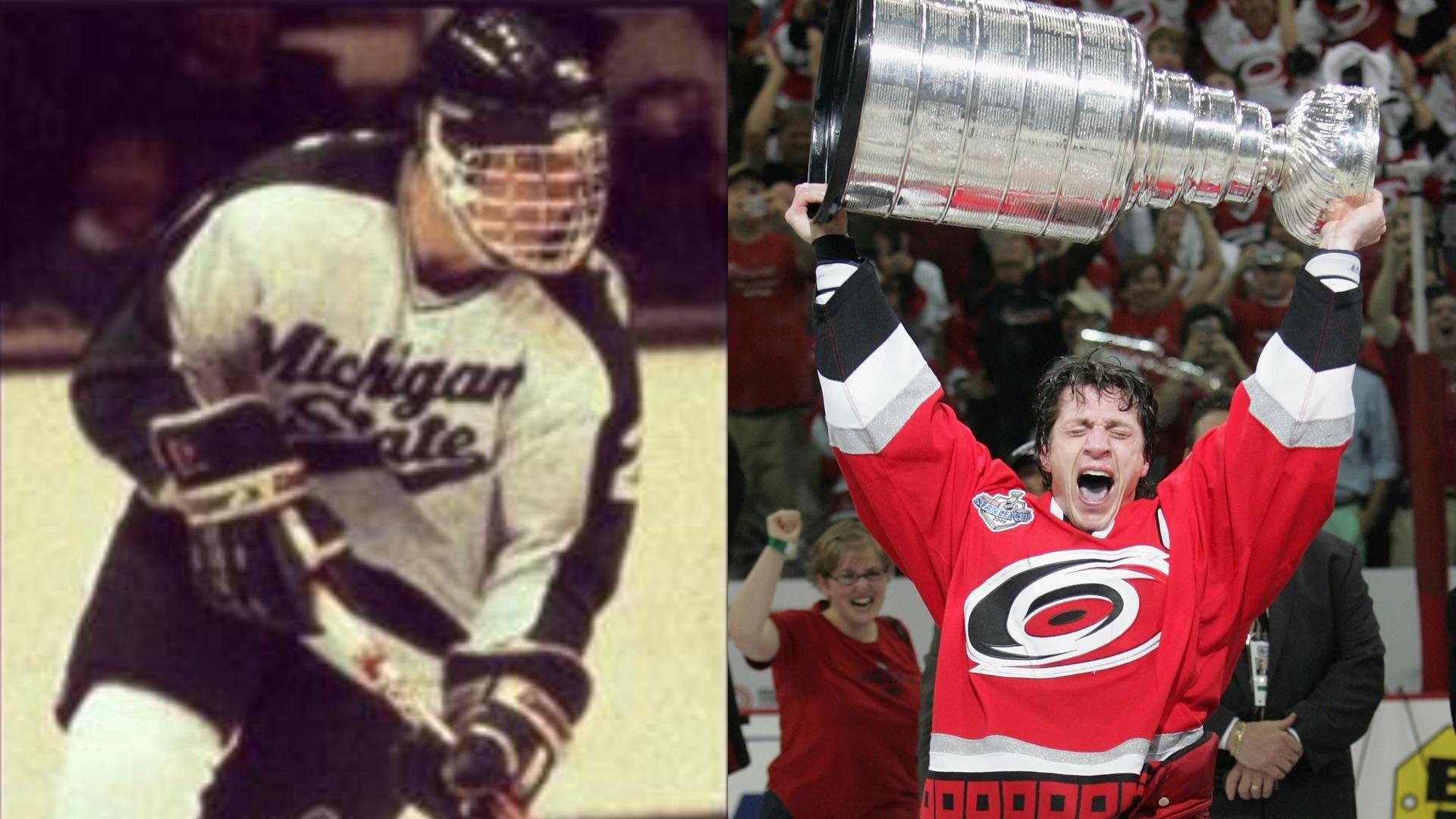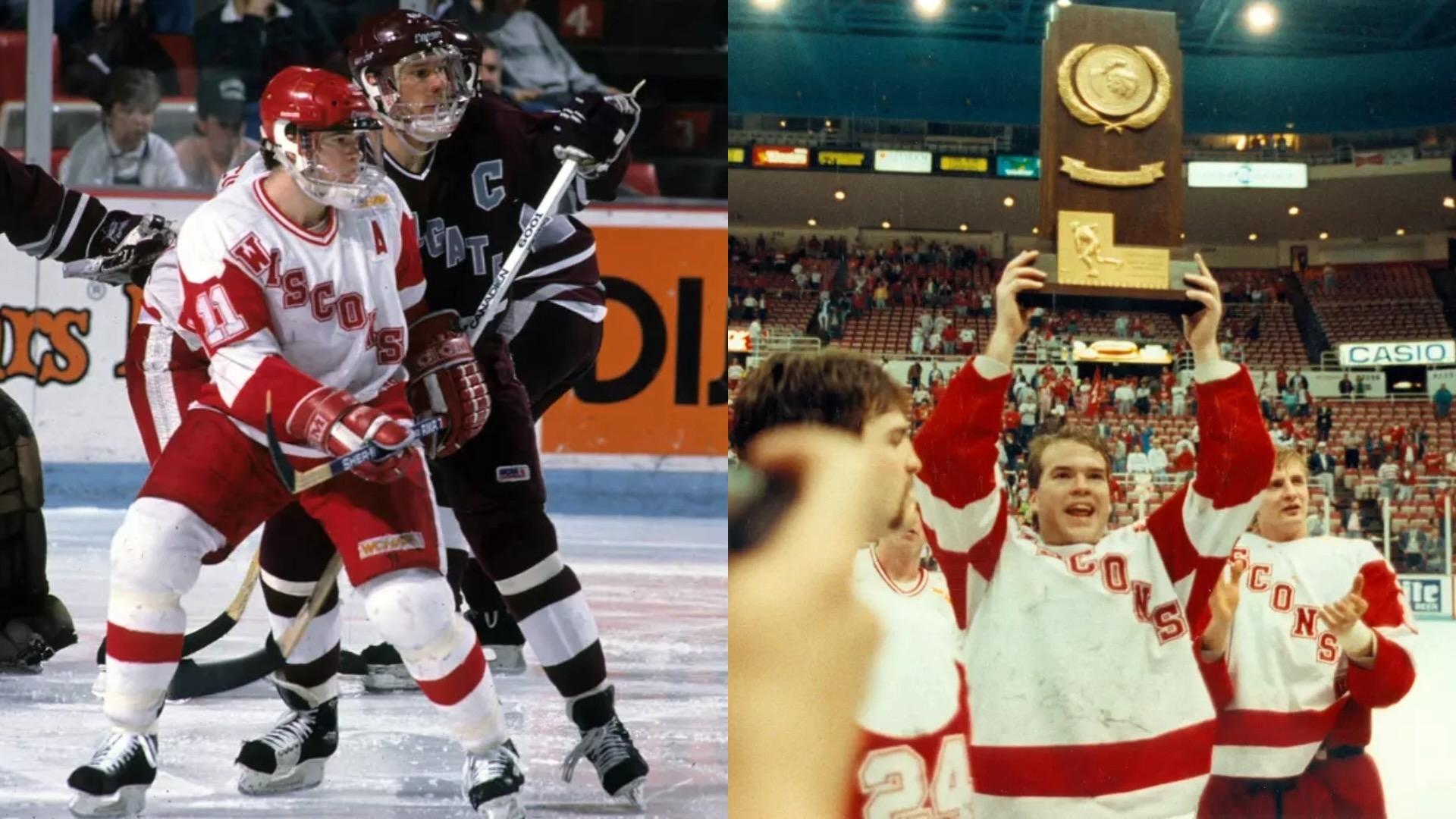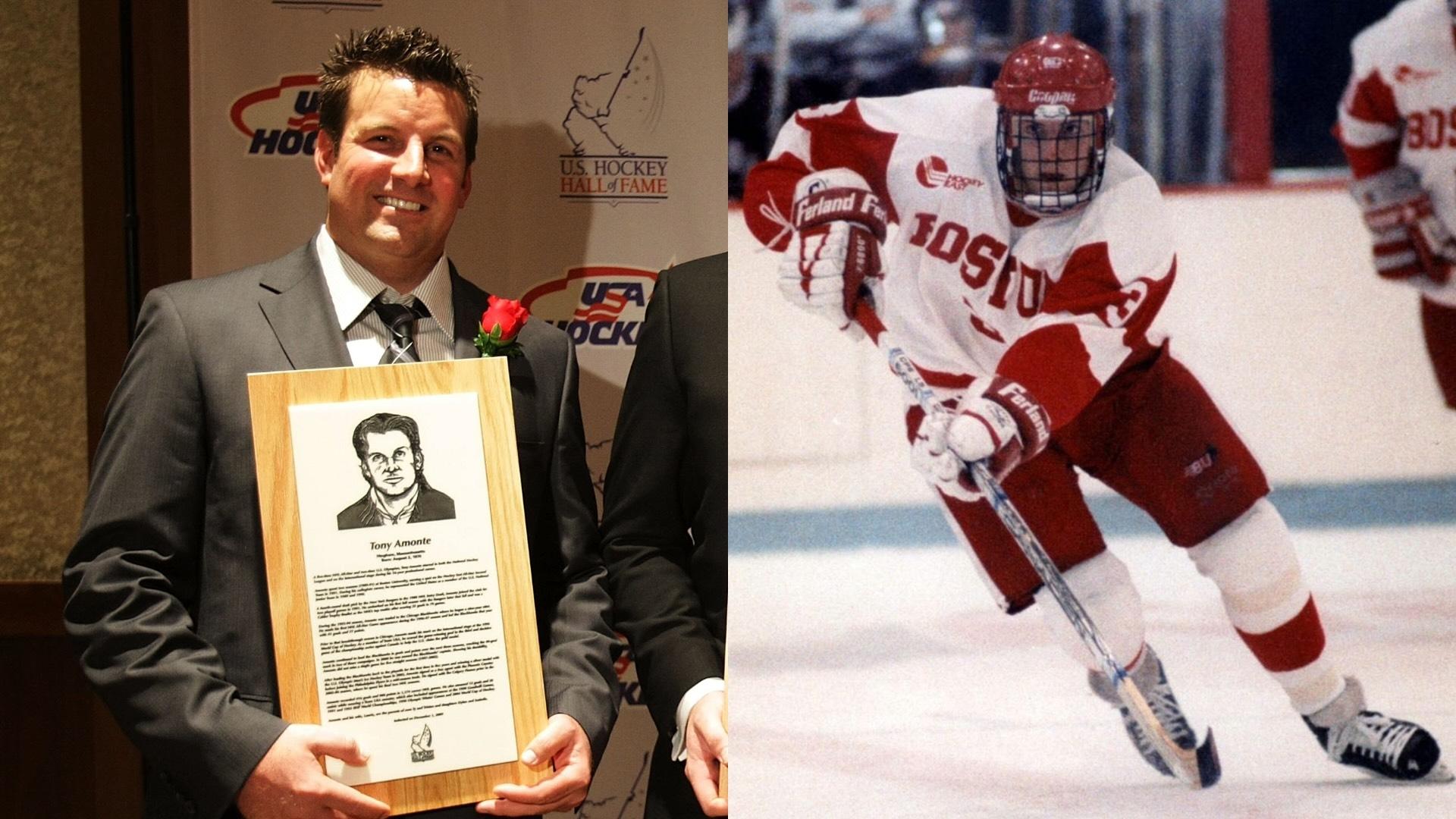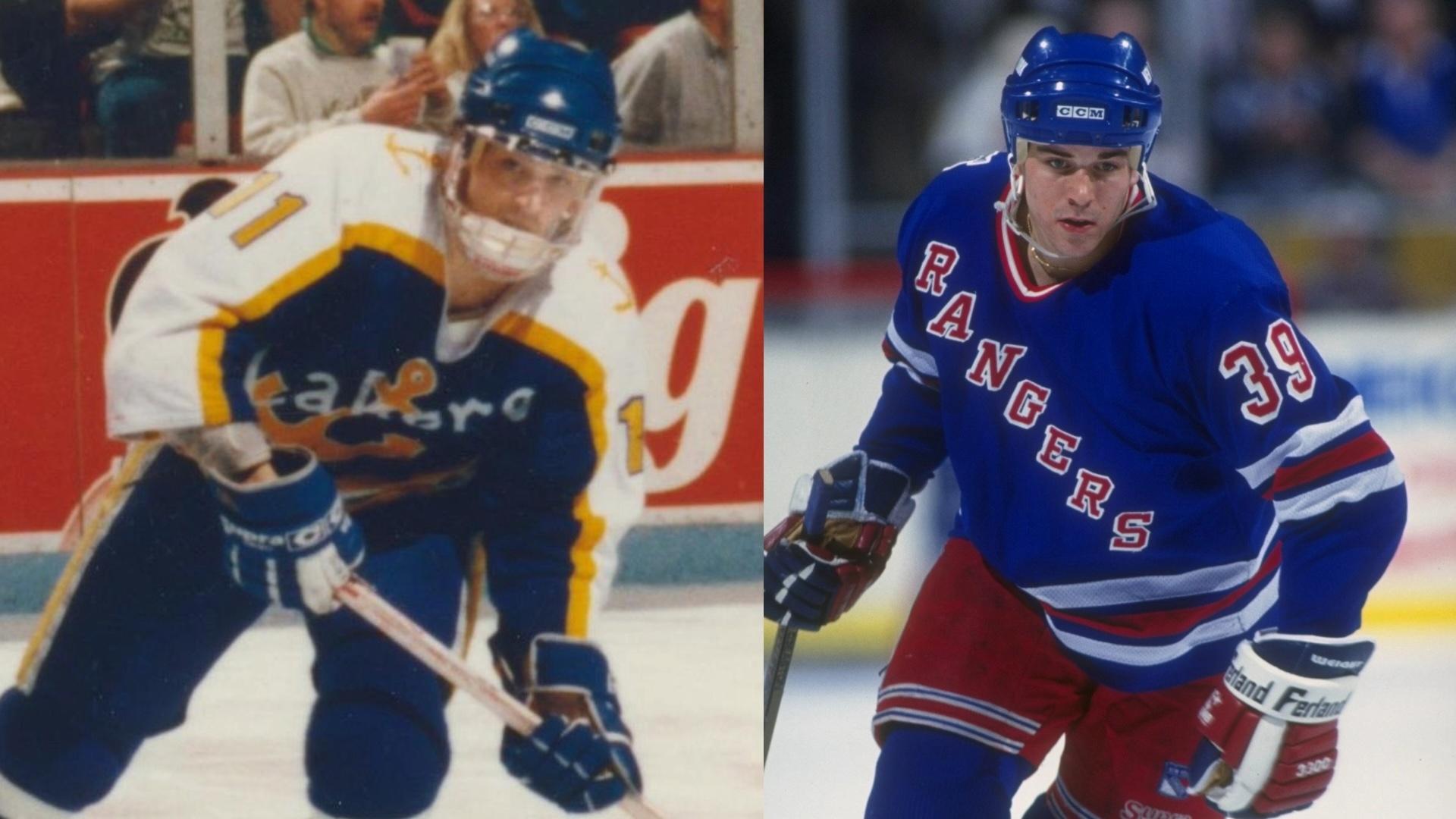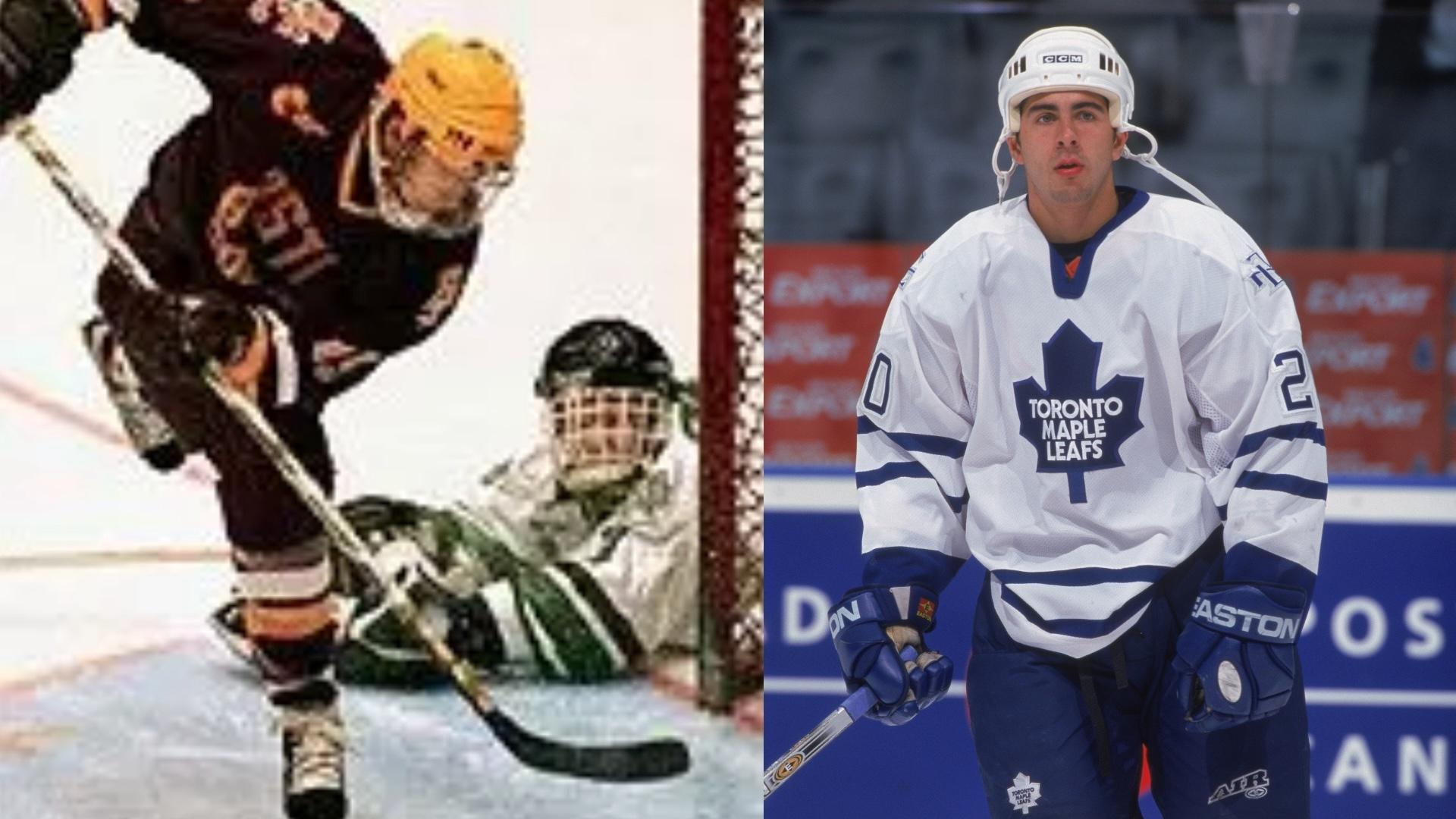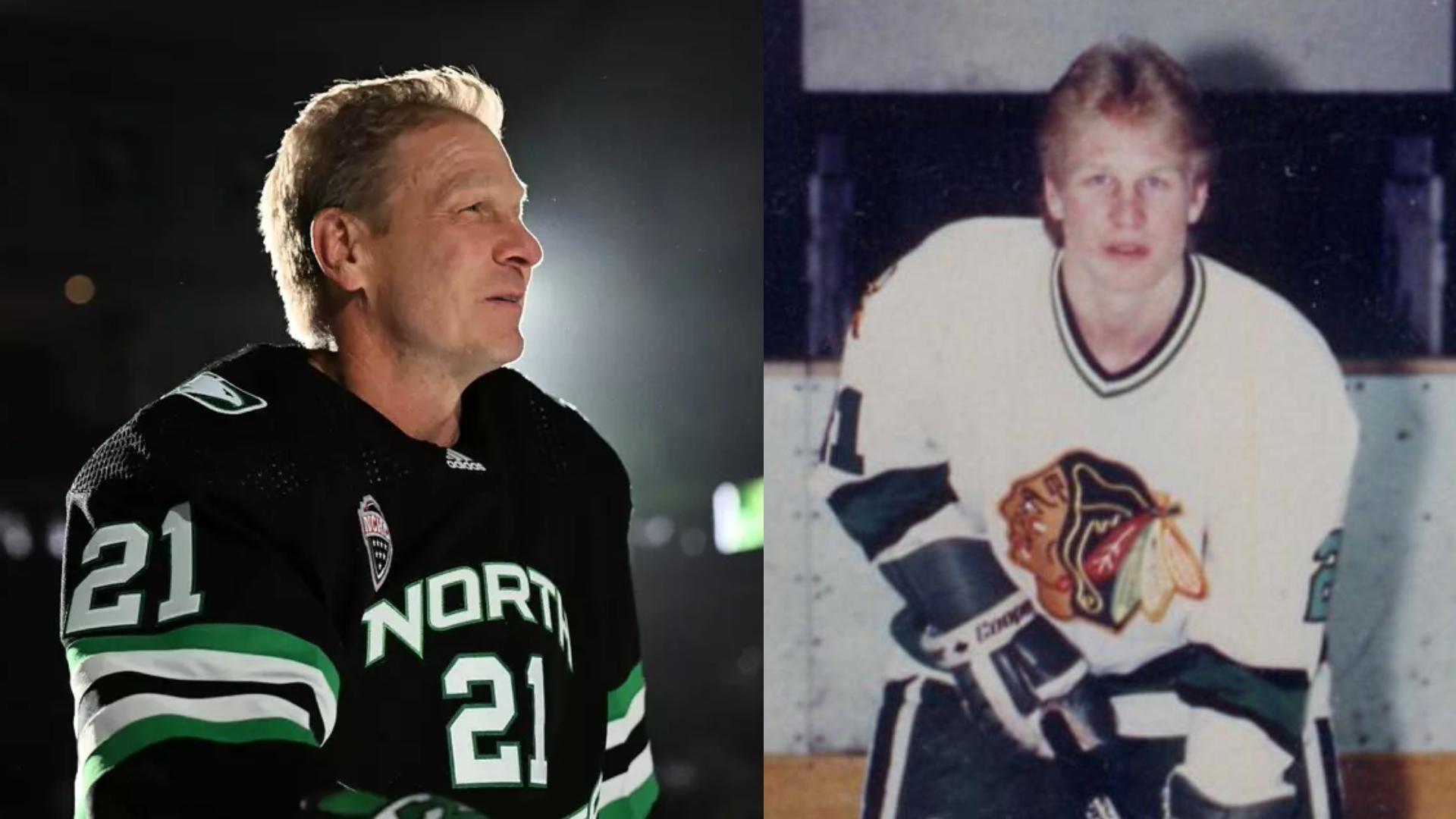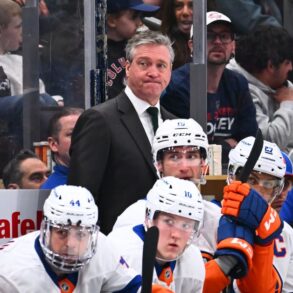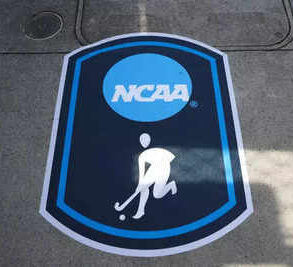Each year, the NCAA DI men’s ice hockey tournament is played through mid-April — close to the time the NHL playoffs typically start. This fun scheduling quirk means that some of the nation’s top NCAA players from even Frozen Four teams can go straight from college hockey to the Stanley Cup playoffs.
This list is very exclusive, relying on NCAA and NHL schedule-makers, NHL general managers, NHL coaches and individual players to all be on the same page. Here’s a list of nine players in this club and their NCAA/NHL accomplishments:
Cale Makar: UMass, Colorado Avalanche
Cale Makar was a highly coveted NHL prospect out of junior hockey in Canada, but the 2017 NHL fourth overall pick stayed loyal to his commitment to helping rebuild the UMass hockey program, opting to go to college instead of turning pro.
In his rookie season with the Minutemen, Makar finished fifth on the team in scoring with 21 points in 34 games. He earned co-Rookie of the Year honors from the New England Hockey Writers Association, as well as Hockey East All-Rookie and Third All-Star team selections.
Makar decided to return to college for his sophomore season — and it paid off for his development. He finished second in scoring in Hockey East with 49 points in 41 games and became the first Minuteman to win Hockey East Player of the Year. He was also selected to the Hockey East First All-Star Team, and he capped off his impressive college resumé by winning the 2019 Hobey Baker award.
And he made good on his promise to rebuild the UMass program, leading the Minutemen to their first Frozen Four appearance in school history in 2019. They would go on to lose to Minnesota Duluth in the national championship game.
On April 15, 2019, Makar made his NHL debut in game three of the first round of the Stanley Cup playoffs for the Colorado Avalanche, scoring his first career goal on his first shot in the league and becoming the first defenseman to score a playoff goal in his NHL debut.
Makar would go on to win the Calder Memorial Trophy as the NHL’s top rookie in 2020 and would win the 2022 Stanley Cup with the Avalanche, as well as the 2022 Norris Trophy as the league’s top defenseman.
Brett Hull: Minnesota Duluth, Calgary Flames
Known for his powerful shot, Hull scored a UMD record for goals by a rookie with 32 goals his freshman season, earning him WCHA Rookie of the Year honors in 1984-85. He returned as a sophomore in 1985-86, and he again broke a school record, this time for goals in a single season with 52. He finished the season with 32 assists and 84 points in 42 games and was a finalist for the Hobey Baker Award.
The Bulldogs failed to make the NCAA DI men’s ice hockey championship that season, and Hull signed a contract with the NHL’s Calgary Flames. He made his NHL debut on May 20, 1986, in Game 3 of the Stanley Cup Finals against the Montreal Canadiens. Hull played in two games, but did not score in the Flames’ five-game series loss.
Hull went on to record 1,391 points in 1,269 NHL games for the Flames, Blues, Stars, Red Wings and Coyotes. His 741 NHL goals put him fifth-most in league history. He won the Stanley Cup twice in his career: first in 1999 with Dallas and in 2002 with Detroit. Hull was inducted into the Hockey Hall of Fame in 2009, joining his father, legendary NHL defenseman Bobby Hull.
Chris Kreider: Boston College, New York Rangers
The Boxford, Massachusetts native had an excellent rookie season for his hometown Eagles, finishing second among rookies in Hockey East with 14 goals, earning him Hockey East All-Rookie Team honors. Boston College went on to win the 2010 Frozen Four title game, and Kreider scored a goal in the Eagles’ 5-0 win over Wisconsin.
In his sophomore season, Kreider had surgery for a broken jaw, slowing his production, but he returned for his junior season at Boston College, leading the team to a second national championship in his tenure. He finished his junior season with 23 goals and 45 points in 44 games, earning him All Hockey-East Second Team honors.
Kreider signed an entry-level contract with the New York Rangers on April 10, 2012, and he made his NHL debut in game three of the first round on April 16. Although his debut was uneventful, he remained in the lineup for the rest of the Rangers’ deep playoff run, recording seven points in 18 games. His five playoff goals set a new NHL record for most playoff goals scored by a player before playing his first NHL regular season game.
Rod Brind’Amour: Michigan State, St. Louis Blues
Rod Brind’Amour played one collegiate season for Michigan State, recording 27 goals and 32 assists for 59 points in 42 games as a rookie. He received All-CCHA Rookie Team honors in 1989. In college, Brind’Amour was known for his intense workouts, often going straight from a game to the weight room, earning him the nickname “Rod the Bod.”
After his freshman season, Brind’Amour joined the St. Louis Blues, where he debuted in Game 5 of the Norris Division semifinals against the Minnesota North Stars. In that game, he scored a goal on his first shot as a professional. He scored another goal in the series, finishing with two goals in five games in those playoffs.
Brind’Amour is best known for his time with the Carolina Hurricanes, where he played 10 seasons and won the Stanley Cup as captain in 2006. He finished his NHL career with 1,184 points in 1,484 games, and joined the Hurricanes as an assistant coach in 2011. He was hired as the team’s head coach in 2018 and has been the Canes’ bench boss since.
John Byce: Wisconsin, Boston Bruins
Byce was drafted 220th overall by the Bruins straight out of high school, but played four seasons for Wisconsin, recording 165 points in 169 games for the Badgers. He joined the team as a walk-on in 1985 and was redshirted. His breakout season came as a redshirt junior, when he was named as an alternate captain and recorded 55 points in 42 games. Byce’s last college season was his best, tallying 71 points in 46 games and winning the 1990 NCAA DI men’s hockey championship. Byce scored a hat-trick in the Badgers’ 7-3 win over Colgate and was named to the All-Tournament Team.
Byce signed with the Boston Bruins and made his NHL debut on April 15, 1990 in game 6 of the Adams Division semifinals against the Hartford Whalers. He scored his first NHL goal in game seven of that series, helping the Bruins to a series win.
Boston advanced all the way to the Stanley Cup Finals that year, and Byce finished with two goals in eight games. He scored his second goal in game three of the finals in the Bruins’ only win of the series.
Byce became the first player to win an NCAA championship and compete in the Stanley Cup Finals in the same year. He finished his hockey career with two goals and three assists in 21 NHL games.
Tony Amonte: Boston University, New York Rangers
Amonte had 58 points in 41 games his rookie year for Boston University, earning him 1989-90 All-Hockey East Rookie Team honors. He returned for a second year in 1990-91, and he totaled 68 points in 38 games.
Amonte and the Terriers made it to the NCAA DI men’s ice hockey championship game that season. Amonte had a goal and an assist as part of a wild Terriers’ comeback effort in which they erased a three-goal third-period deficit to force overtime. Northern Michigan would eventually win the championship 8-7 in triple overtime. Amonte was named to the 1991 All-NCAA All-Tournament Team.
Amonte made his NHL debut for the New York Rangers on April 11, 1991, in Game 5 of the Patrick Division semifinals against the Washington Capitals. Amonte recorded an assist, though the Rangers would lose the game in overtime and would go on to lose the series in six games. Amonte finished with two assists in two games in those playoffs.
Amonte finished his career with 900 points in 1,174 games. He spent most of his career with the Chicago Blackhawks, where he recorded six consecutive 30-goal seasons from 1995-96 to 2000-01. Amonte was inducted into the U.S. Hockey Hall of Fame in 2009.
Doug Weight: Lake Superior State, New York Rangers
During his rookie season in 1989-90, Weight recorded 69 points in 46 games for Lake Superior State, earning All-CCHA Rookie Team honors. In his sophomore season, he put up 75 points in 42 games and was named to the All-CCHA First Team. The Lakers won the CCHA tournament, and Weight was named to the All-CCHA Tournament Team. They went on to lose in a three-game series against Clarkson in the 1991 NCAA championship quarterfinals.
After the 1991 college season, Weight debuted for the New York Rangers against the Washington Capitals on April 13, 1991. He played only one playoff game that postseason and he did not record any points.
Weight finished his career with 1,033 points in 1,238 NHL games. He had his best years with the Edmonton Oilers, recording a career-high 104 points in 1995-96. He won a Stanley Cup alongside Rod Brind’Amour with the Carolina Hurricanes in 2006. He was inducted into the U.S. Hockey Hall of Fame in 2013.
Jeff Farkas: Boston College, Toronto Maple Leafs
Jeff Farkas led all Boston College rookies in scoring in 1996-97 with 36 points in 35 games. He would continue that point-per game pace throughout his four-year collegiate career, scoring 190 points 159 games for the Eagles.
Farkas earned All Hockey-East Tournament Team honors twice in his career, first as a sophomore and then as a junior. As a senior, he led Boston College to the national championship game, scoring a goal in the Eagles’ 4-2 loss to North Dakota. Farkas was named a finalist for the Hobey Baker award after finishing third in the NCAA in scoring with 58 points as a senior.
Following the end of his four-year college career, Farkas joined the Toronto Maple Leafs for the 2000 Stanley Cup playoffs. He made his pro debut in game four of the second round against the New Jersey Devils, and would go on to play three games and score one goal in the Leafs’ playoff run.
Farkas’ career ended abruptly when he suffered a broken neck that nearly paralyzed him after he fell head first into the boards in an American Hockey League game in 2003. He played just 11 NHL games for the Maple Leafs and Atlanta Thrashers, but he had 160 points in 211 career AHL games. Farkas was inducted into the Boston College Varsity Club Hall of Fame in 2014.
Tony Hrkac: North Dakota, St. Louis Blues
Hrkac was a star for North Dakota in his two collegiate seasons. As a freshman in 1984-85, he put up 54 points in 36 games. The following season, the Thunder Bay, Ontario native joined the Canadian national team, before returning to UND in 1986-87.
Hrkac had a breakout season for North Dakota in his sophomore year, scoring an NCAA-record 116 points in 48 games — a record which has stood for nearly 40 years. His outstanding offensive production earned him several honors, including All-WCHA First Team and AHCA West First-Team All-American. He was also the first North Dakota player ever to win the Hobey Baker award. Hrkac led North Dakota to a school-best 40-8 record and its fifth national championship that season — and he won the 1987 NCAA Tournament MVP.
Hrkac made his NHL debut for the St. Louis Blues on April 9, 1985 in game two of the first round of the NHL playoffs. He went on to play three games for the Blues in their first-round loss to Toronto, but he didn’t record a point. He went on to play 758 NHL games, recording 371 career points and winning the Stanley Cup alongside Brett Hull with the Dallas Stars in 1999.
This post was originally published on this site be sure to check out more of their content.




